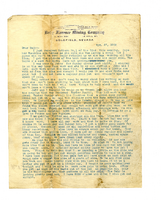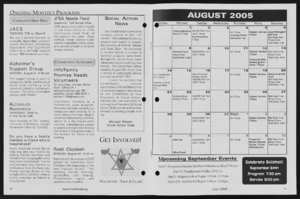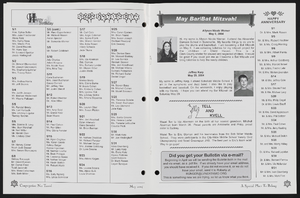Search the Special Collections and Archives Portal
Search Results
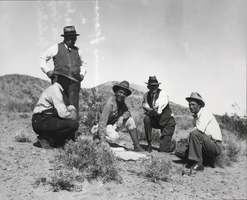
Photograph of men surveying land, Hoover Dam site, March 13, 1931
Date
Archival Collection
Description
Image
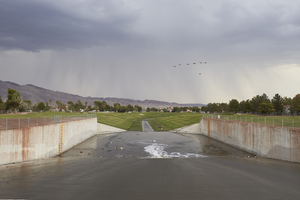
Flamingo Wash near the Club at Sunrise Golf Course, looking east from Nellis Boulevard, Clark County, Nevada: digital photograph
Date
Archival Collection
Description
Image
Phillip L. Cook oral history interview
Identifier
Abstract
Oral history interview with Phillip L. Cook conducted by Richard Strahan on March 3, 1977 for the Ralph Roske Oral History Project on Early Las Vegas. Cook first talks about his parents' move to Nevada and discusses how the school system has changed over time. He then describes the first businesses that opened up in the Downtown and Strip areas of Las Vegas, Nevada before discussing prostitution, Block 16, and recreational activities available to youth. Cook also talks about the first television sets and telephone systems made available, and he moves on to talk about the prices of things such as movies and haircuts when he was younger. The interview then moves to discussions on the Old Ranch, racial discrimination, school integration, the crime rate, and the school system in Las Vegas.
Archival Collection
Linda and Ross Fitzpatrick oral history interview
Identifier
Abstract
Oral history interview with Linda and Ross Fitzpatrick conducted by Claytee D. White on October 10, 2015 for the Boyer Early Las Vegas Oral History Project. In this interview, Linda and Ross discuss their personal histories and how they eventually met. They describe where Walking Box Ranch is located and recall their interest in the area near Searchlight, Nevada. Later, the two recall their decisions on what to preserve at Walking Box Ranch after buying the property. Lastly, Ross discusses being appointed by the Canadian Prime Minister to the Canadian Federal Senate in 1998.
Archival Collection
Mary M. Laub and Bill Laub, Jr. oral history interview
Identifier
Abstract
Oral history interview with Mary M. Laub and Bill Laub, Jr. conducted by Stefani Evans and Claytee White on September 15, 2017 for the Building Las Vegas Oral History Project. Mary and Bill Jr. recall their Southwest Gas Company in Las Vegas, Nevada. Bill Jr. discusses the natural gas and propane delivery systems in Clark County, Nevada and the MGM and Hilton Hotel fires.
Archival Collection
Eddie Eliscu oral history interviews
Identifier
Abstract
Oral history interviews with Eddie Eliscu conducted by Arnold Shaw between approximately 1986-1987 for the Arnold Shaw Oral History Project on Las Vegas Entertainers. In these interviews, Eliscu reflects upon his career in entertainment, from serving as a social director at Camp Copake, New York to songwriting for stage and film. He describes his upbringing in a non-musical family, his first performances, and the more prominent professional developments of his career.
Archival Collection
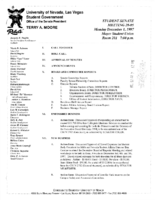
Meeting minutes for Consolidated Student Senate University of Nevada, Las Vegas, December 1, 1997
Date
Archival Collection
Description
Text
